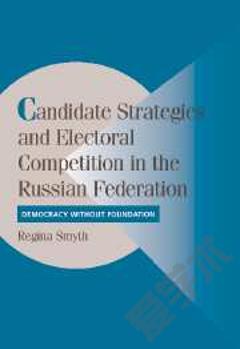Candidate Strategies and Electoral Competition in the Russian Federation: Democracy without Foundation
In the early 1990s, competitive elections in the Russian Federation signaled the end of the authoritarian political system dominated by a single political party. More than ten years and many elections later, a single party led by Russian President Vladimir Putin threatens to end Russia's democratic experiment. Russia's experience with new elections is not unique but it does challenge existing theories of democratic consolidation by showing that competitive elections cannot guarantee successful democratic consolidation. This book explores the conditions under which electoral competition contributes to democratic development by examining impact of elections on democratic consolidation. The theoretic framework focuses on the construction of infrastructure that transforms competitive elections into mechanisms of democratic development and shows how candidates for national parliamentary office systematically chose electoral strategies that undermined Russia's democratic foundation and created the conditions for a new single party autocracy to emerge.
{{comment.content}}








 京公网安备 11010802027623号
京公网安备 11010802027623号